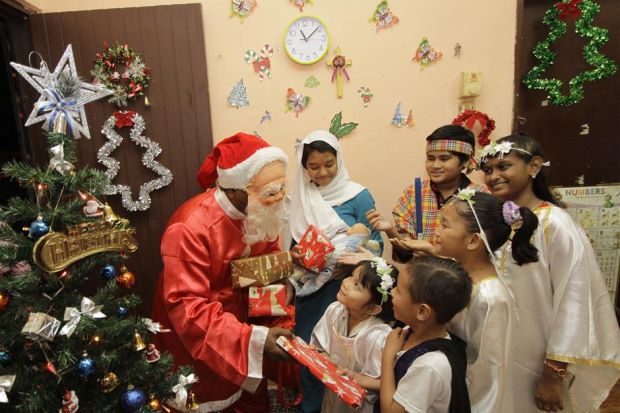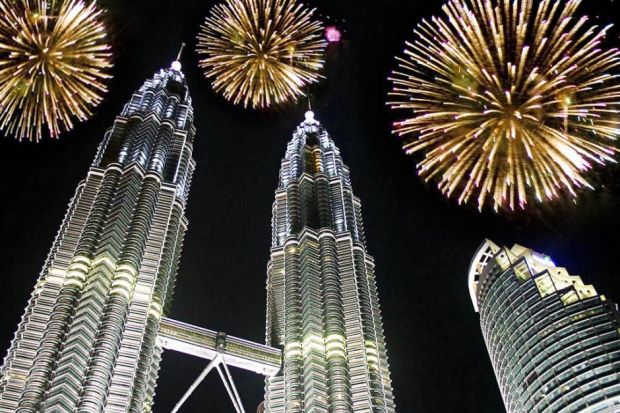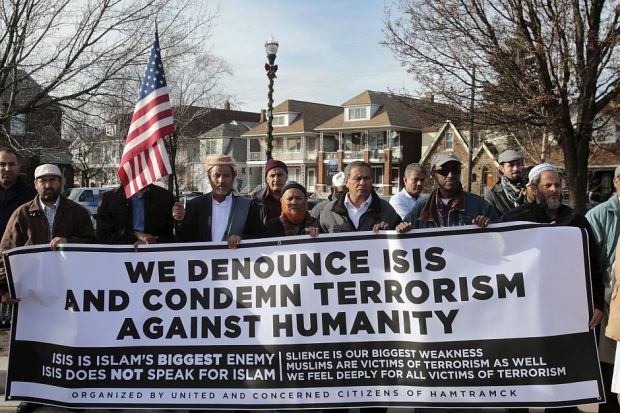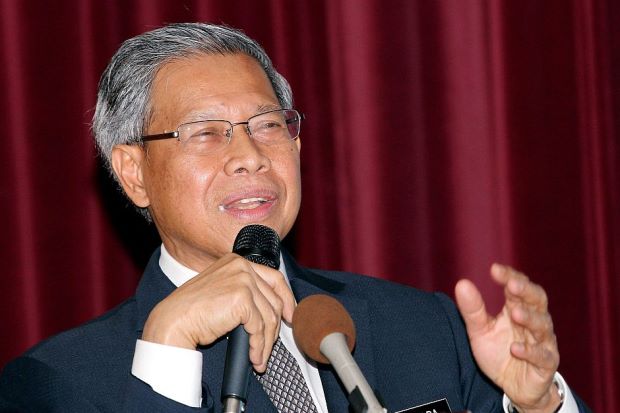
Sultan Ibrahim posing for a wefie with members of the public.
BY WONG CHUN WAI and NELSON BENJAMIN
JOHOR BARU: Johor Ruler Sultan Ibrahim Ibni Almarhum Sultan Iskandar has made it clear that he is above politics and does not favour any politician.
He also feels that Prime Minister Datuk Seri Najib Tun Razak should be given a chance as every Malaysian prime minister had also made mistakes in the past.
During an hour-long exclusive interview to wrap up the year, the Johor Ruler spoke emotionally on an array of issues, including his late son Tunku Laksamana Tunku Abdul Jalil, as well as his relations with the Prime Minister and former deputy prime minister Tan Sri Muhyiddin Yassin.
He also spoke on the dangers of vaping and why it had to be banned immediately, describing it as a “technology drug” which was threatening the society.
The Sultan also touched on religious issues, including the huge budget for the Malaysian Islamic Development Department (Jakim).
The Star: Tuanku, we wish to express our condolences on the recent demise of His Highness Tunku Laksamana Tunku Abdul Jalil. How has the family coped with the event of the past weeks, if we may ask?
Sultan Ibrahim Ibni Almarhum Sultan Iskandar: This has been a roller-coaster year for the family and me. The high points have been the coronation in March this year when I became the state’s fifth Sultan in the history of modern Johor. The last time a coronation ceremony took place was 55 years ago.
I also conferred the new title of Permaisuri Johor on my consort Raja Zarith Sofiah Sultan Idris Shah at the coronation ceremony, which was another historic occasion.
In October last year, my eldest son, the Tunku Mahkota of Johor Tunku Ismail Sultan Ibrahim ended his bachelorhood when he married Che’ Puan Khaleeda Bustamam.
But all these events took place against the backdrop of the difficulties the family was going through as we joined Tunku Jalil in his fight against his illness.
He was diagnosed while he was on a holiday with us in the United Kingdom in August last year. He was truly a fighter and a man of steel. While it was painful for him during the medical treatment, it was equally painful for us.
We are, after all, ordinary human beings too. I am a father like other parents in Johor. It crushed my heart each time I saw my son suffer, especially when I knew that he was dying. I had to be strong for him until the end.
But as my wife penned in a heartfelt letter which she has shared with Malaysians, sometimes things don’t go as we plan. No matter how painful, one needs to accept reality with an open heart.
(Tunku Abdul Jalil passed away on Dec 5. He had been diagnosed with stage-four liver cancer.)
I have kept all the text messages that he had sent to me. These are precious memories, which are very important to my family and me.
But we must accept fate and destiny. Allah has His reasons. I wish to take this opportunity to thank Malaysians, especially Johoreans, from all walks of life, races and religions who opened up their hearts in pouring out their support for my son.
I truly wish to thank them from the bottom of my heart. I am deeply touched.
Even until this day, there are people still visiting the royal mausoleum to pay their last respects.
On the ban of vaping
Q: Tuanku, on the subject of health, Your Royal Highness has ordered the ban on the sale of all vaping products in the state. What prompted Your Royal Highness to be so decisive?
A: I did my research and this is not our custom. Neither is shisha. I was shocked and disgusted when I saw women in headscarves and even children puffing away.
I realised that this was the beginning of a disaster and had to put my foot down as soon as possible. To me, this is a technology drug that will be harmful. Unlike drugs, this is difficult to detect.
I was fed up of the various authorities at both the state and federal levels, which could not decide on what to do. They were dragging their feet and some politicians were making silly remarks such as vaping should not be banned because a million votes would be lost and bumiputra interest would be affected.
I know what is good and I am firm that all this has to stop beginning Jan 1 next year. So far, all those opposing are doing it from a business stand. Do you not care about people’s health?
There are also those who oppose, including a “comedian in red” who has jumped into the issue to give their comments.
(Right-wing activist Abdul Rani Kulup Abdullah or Kipidap is a quirky character who is often seen wearing a red beret, and has made headlines for lodging more than 1,000 police reports against opposition politicians and NGO leaders.
He recently joined other Malay-based NGOs to say that Barisan Nasional risks losing a million votes in the next general election if the authorities continue the crackdown on e-cigarettes and vaporisers.)
It is purely a health issue and some mindless politicians are talking about politics and race, it’s incredible.
The media, including The Star, has been highlighting how even primary schoolchildren were spending their pocket money on vape products.
What I feared has taken place. The police have now arrested people who sold “ganja vape”. What is more worrying is that the syndicate has been in operation since August and has catered to its clientele via the Internet and sent their products via courier.
This is underground business. What would be the effects if Johor allows open sales in shopping malls, shoplots and pasar malam?
I can show the many e-mails and letters I have received from all over Malaysia, especially from parents, expressing their support for Johor’s decision to lead.
Now other states are also following suit and even the National Fatwa Council has declared vaping as haram.
To me, education and health should not be politicised.
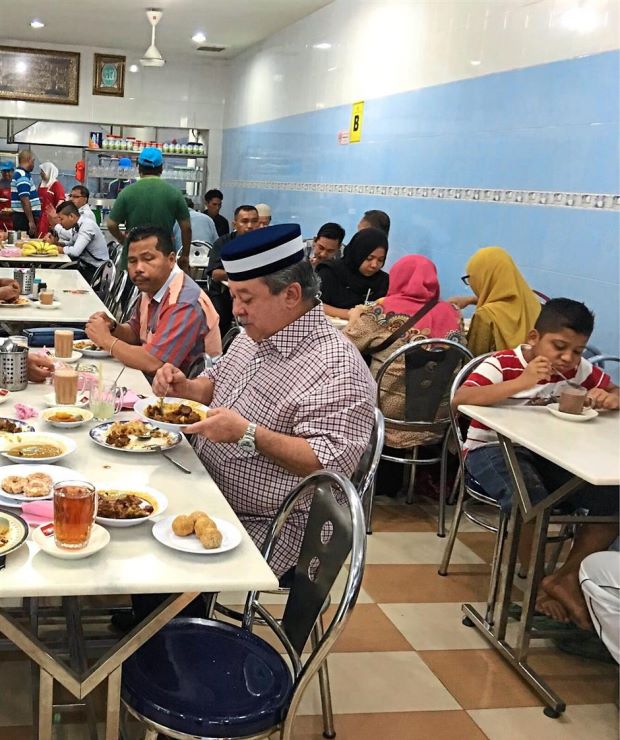
The Ruler dining at a restaurant in Muar, Johor. He later paid for his own food and also paid for all customers who ate at the restaurant that day.
On the strong remarks by Tunku Mahkota of Johor on social media
Q: Tuanku, this has also been a year when Johor found itself in the spotlight. The Tunku Mahkota of Johor has made strong statements on issues affecting the leadership and the country.
A: Yes, the TMJ has spoken up on the need to be transparent, accountable and credible but it was never directed at anyone.
He has his points. Whoever consumes chilli will surely rasa pedas (feel the heat). I do not argue with the TMJ about his comments as I do ask him about them and once he explains, I am fine with it.
But I always advise him not to hurt anyone. Based on his success in football, I think he has changed the face of football in the country. Not many people are happy with his success. His comments and hints seem to get support from the people. I go through Facebook and see the comments.
On the role of a Ruler and his authority
Q: Would that lead to the perception by some politicians that Tuanku has gone beyond your authority?
A: I am not a puppet in Johor. I have the right to call my mentri besar to tegur (advise) him at any time and others in my government as well. I am the one who appoints the state government. I have always put my rakyat’s interest first.
Let me give a history lesson here as it was my great-grandfather, the late Sultan Ibrahim, who gave money to start Umno and the first meeting was actually held at the palace in Johor.
Subsequently, his son, the late Sultan Ismail, as the regent of Johor at the time, inaugurated the Malay Congress on May 11, 1946 at Istana Besar in Johor Baru that led to the setting up of Umno.
Let me remind politicians who do not know history or are too lazy to read history books – Umno was born in the Johor palace grounds.
Where Umno is today began at the very palace grounds we are sitting on now. That’s the party history.
Sultan Ismail’s role was also recognised during a large parade held on June 8, 1946 to celebrate Britain’s success in regaining Malaya after Japan’s surrender.
That’s how the palace has taken up its responsibilities at crucial points of the nation’s history.
On Rulers as the custodians of Islam and Jakim
Q: Can Tuanku talk about the role of the Rulers as the custodians of Islam, given recent debate that some federal religious agencies appear to exert influence and authority onto this religious space?
A: We are the heads of religion in our own states. The Malaysian Islamic Development Department (Jakim) can give advice or propose guidelines but it is up to us (Sultans) whether we want to accept it.
I have appointed a panel in the Johor Islamic Council. They come up with fatwas (decrees) for me to approve it. The fatwa cannot be effective without my approval. Sometimes I do question a fatwa and I want them to explain it, but Jakim has no right to interfere in the state.
Do you know that Islamic schools started in Johor before they were introduced to other states? We never had sekolah pondok but instead organised religious schools. Others are actually using our syllabus too.
Jakim reports to the Conference of Rulers and they usually advise the Federal Government.
I am curious to know – if it is true – why do they need a RM1bil budget? Does it include allocations to all the states? During my next Conference of Rulers, I want them to show me their breakdown for expenses. I want to know if they are financing our religious schools here.
On the Johor palace, the Prime Minister and ex-deputy prime minister
Q: Your Royal Highness, forgive us for asking this sensitive and delicate question, given the fact that Johor is now a political hotbed. The Johor palace statement, whether official or casually made on social media, has given the impression that you are critical of the Prime Minister or even not in favour of him.
A: No, I do not favour anyone. I never said I do not favour the Prime Minister. He is the Prime Minister whether you like it or not.
I must say that every prime minister has made his mistakes. To me, Tan Sri Muhyiddin Yassin is my former mentri besar and former deputy prime minister. He comes to see me via appointments. I allow this but I try to avoid talking about politics. He came to see me twice.
He does express his unhappiness. I listen and keep it to myself. I have also met up with the Prime Minister and avoid speaking to him about politics. Let the politician handle politics. I am above politics. If he (Prime Minister) needs advice, I am here as a friend.
The issue of whether you are from Johor does not arise.
Yes, I am outspoken. I speak my mind and I am happy that the message gets across.
The palace grants audiences to many leaders but it does not mean that after these visits, we are meant to endorse their leadership.
They are politicians but please do not abuse or misuse the good name of the palace. I am very proud of being a Johorean but that does not mean I must blindly support anyone from Johor. The people should also not make such deductions.
The Prime Minister is from Pahang, but he has also regularly updated me on development issues affecting the state. There are official visits by him which are widely reported in the press, but we also have quiet, informal meetings.
He is deeply concerned about issues affecting Johor because of our proximity to Singapore, which is a strategic partner to Johor. Both of us believe that Johor and Malaysia will benefit from the ongoing development and when the Kuala Lumpur-Singapore fast train is built, the benefits will be enormous.
I do not want to dig up the past nor do I wish to take a swipe at any politician, active or retired, but the Prime Minister understands and appreciates the need to work closely and not to repeat the past.
I find it hard to understand the rationale or irrationality of any Malaysian leader who wants Malaysia to quarrel with Singapore. It’s what I called crooked thinking.
There is so much we can learn from Singapore. They have done well, let’s be honest here. We don’t have to go on expensive study trips to Europe or the United States – just go across the Causeway to Singapore, they have done so many things that are correct and efficient.
I know the Prime Minister has come under much criticism but I say give him a chance. The year has come to an end, we must move on. It has been a challenging year for everyone, including myself. There are issues that still need to be tackled, that need to convince the people, that need answers, but I must say that they also need closure.
Every one of us makes mistakes but we must be prepared to learn from them, make amends and do what is right. Right what is wrong.
